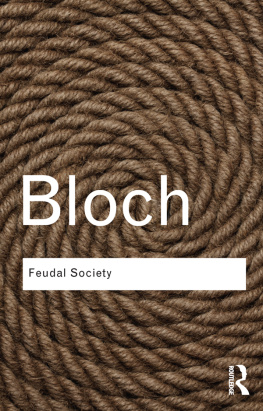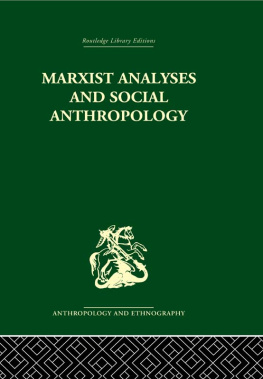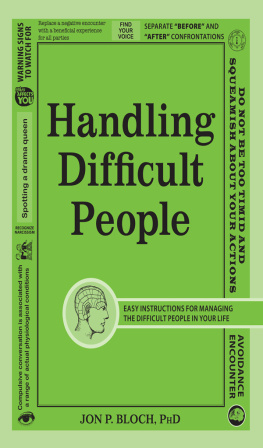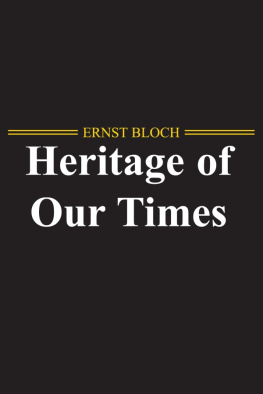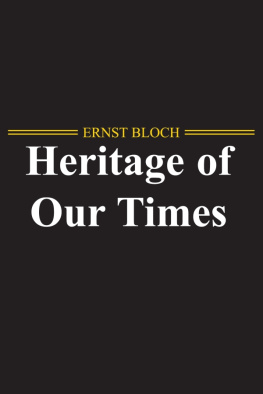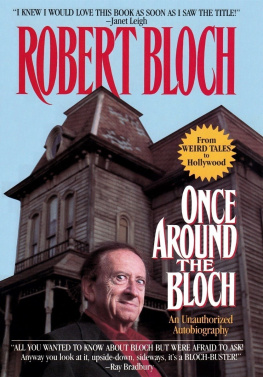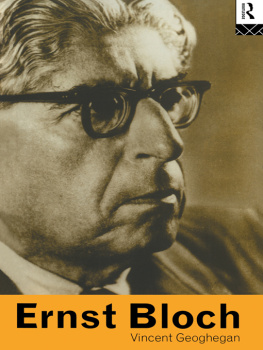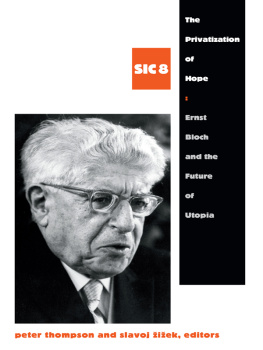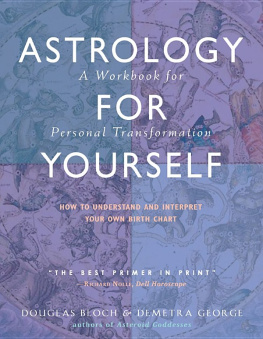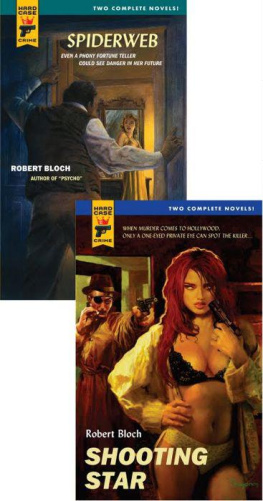Bloch - Feudal Society
Here you can read online Bloch - Feudal Society full text of the book (entire story) in english for free. Download pdf and epub, get meaning, cover and reviews about this ebook. publisher: Taylor and Francis, genre: Religion. Description of the work, (preface) as well as reviews are available. Best literature library LitArk.com created for fans of good reading and offers a wide selection of genres:
Romance novel
Science fiction
Adventure
Detective
Science
History
Home and family
Prose
Art
Politics
Computer
Non-fiction
Religion
Business
Children
Humor
Choose a favorite category and find really read worthwhile books. Enjoy immersion in the world of imagination, feel the emotions of the characters or learn something new for yourself, make an fascinating discovery.
Feudal Society: summary, description and annotation
We offer to read an annotation, description, summary or preface (depends on what the author of the book "Feudal Society" wrote himself). If you haven't found the necessary information about the book — write in the comments, we will try to find it.
Feudal Society — read online for free the complete book (whole text) full work
Below is the text of the book, divided by pages. System saving the place of the last page read, allows you to conveniently read the book "Feudal Society" online for free, without having to search again every time where you left off. Put a bookmark, and you can go to the page where you finished reading at any time.
Font size:
Interval:
Bookmark:

Routledge Classics contains the very best of Routledge publishing over the past century or so, books that have, by popular consent, become established as classics in their field. Drawing on a fantastic heritage of innovative writing published by Routledge and its associated imprints, this series makes available in attractive, affordable form some of the most important works of modern times.
For a complete list of titles visit
www.routledge.com/classics
Marc
Bloch
Feudal Society
Translated from the French
by L.A. Manyon
With a foreword by Geoffrey Koziol

First published by Routledge & Kegan Paul Ltd in paperback in 1965 in two volumes
Translated from the French
La Socit Fodale (first published 1940 in French by Michel Albin, France)
English Translation
Routledge 1962
First published in one volume in Routledge Classics 2014
by Routledge
2 Park Square, Milton Park, Abingdon, Oxon OX14 4RN
and by Routledge
711 Third Avenue, New York, NY 10017
Routledge is an imprint of the Taylor & Francis Group, an informa business
Marc Bloch 1961
2014 Foreword, Geoffrey Koziol
All rights reserved. No part of this book may be reprinted or reproduced or utilised in any form or by any electronic, mechanical, or other means, now known or hereafter invented, including photocopying and recording, or in any information storage or retrieval system, without permission in writing from the publishers.
Trademark notice: Product or corporate names may be trademarks or registered trademarks, and are used only for identification and explanation without intent to infringe.
British Library Cataloguing in Publication Data
A catalogue record for this book is available from the British Library
Library of Congress Cataloging in Publication Data
Bloch, Marc, 18861944.
[Socit fodale. English]
Feudal society / March Bloch; translated from the French by L. A. Manyon; with a
foreword by Geoffrey Koziol.
pages cm. (Routledge classics)
Includes bibliographical references and index.
1. Feudalsim. I. Title.
D131.B513 2014
940.14dc23
| 2014002981 |
ISBN: 978-0-415-73868-2 (pbk)
ISBN: 978-1-315-77216-5 (ebk)
Typeset in Joanna
by RefineCatch Limited, Bungay, Suffolk
Why read a work of history written over seventy years ago? Because the historian was important? Marc Bloch was certainly that. He wrote three works of mature historical scholarship, each very different in subject matter and source material but each strikingly innovative. Les rois thaumaturges (1924) was a study of the belief that the kings of France and England could heal the disease known as scrofula by their mere touch. Here Bloch displayed two interests that became characteristic of his work: the social power of non-rational beliefs and the particular power of secondary beliefs and practices generated within the interstices of orthodoxies. Les caractres originaux de lhistoire rurale franaise (1931) traced the development of different agrarian regimes in France, though this description hardly does the book justice. Using sources uncustomary for historians (including old maps and etymologies), Bloch showed that the shape of agricultural fields had taken very different forms over the course of French history and that the different forms were functions of a web of complexly interacting factorsplowing technologies, soil characteristics, and regimes of lordshipwhich in turn led to widely divergent social and political effects of great importance; one form leading to cohesive peasant communities, the other working against their formation. As for La Socit fodale (193940), it is not really a history at all. Rather, it is a virtuoso analysis of the entire fabric of medieval culture, in which family ties, religious beliefs, political institutions and economic imperatives are all woven into a multi-faceted yet coherent tapestry of a living, changing human society. Nor was Bloch only a writer of scholarly histories. At his death he left chapters of an unfinished work later published as Apologie pour lhistoire, ou Mtier dhistorien(1949). Here Bloch begins with a question once posed by his son: Papa, tell me, what is the use of history? To his credit, Bloch took the question seriously. His books short length and simple style are deceptive: it can take years of experience teaching and writing history before one realizes how profound it is. Finally, with Lucien Febvre he was co-founder and co-editor of the Annales dhistoire conomique et sociale, and for many years he and Febvre were its principal contributors. By the 1960s, now renamed Annales: conomies, Socits, Civilisations, it had become the single most influential journal in the practice of history.
So Bloch was an important historian and Feudal Society was his most comprehensive history. Yet if we are honest with ourselves, that is probably not why we still read it. We read it because of what he would have regarded as his acts of citizenship. Like many secularized Jews of his generation, Bloch believed passionately in the importance of the French Third Republic, not its politics as practiced but the liberal ideals that had led to its foundationincluding the secularity of government and the governments duty to protect the rights of individuals. In 1940, after the Germans had overrun the north of France and Bloch had fled to Montpellier in the south, he wrote down a record of his experiences as a front-line officer at the outbreak of the war: Ltrange dfaite. Here Bloch ceased being a historian reading witnesses of the past and became a witness in a courtroom of the future whose judge would be history. He used the failure of the Third Republic and the French collapse of 1940 to lambast the leaders of society, its generals, politicians, captains of industry, but also its educators. And among educators he criticized historians, in particular, for being so wedded to a belief in the grandeur of French history that they could not see how much present realities travestied those beliefs, making the histories themselves dangerous. Strange Defeat is a French liberals incrimination of nationalism and nationalist histories but also, more broadly, an incrimination of historians who teach history as their politics want it to be, not as it was. And Bloch practiced the citizenship he preached. In 1943 he joined the French Resistance in Lyon and used his skills in communication to help bring the different resistance groups together. In 1944 he was captured and executed, machine-gunned down in a field along with twenty-seven others. If we are honest, this is why we read Marc Bloch: because he was a hero. His life and death are proof to historians that scholarship and heroism are not mutually exclusive, that done well, scholarship can demand heroism.
All this is perhaps why we should read a life of Marc Bloch, or his letters, or Strange Defeat itself. Is it a reason to read Feudal Society? Bloch himself would surely have denied it. For Bloch did not write history as a partisan, a philosopher, or a social critic. He wrote as a scientist. This, in fact, is one of the reasons he was such an important historian: Bloch believed that the practice of history had to become more scientific. His was not the simple positivist historical science in which many nineteenth-century historians had believed, a science of hard facts and chains of cause and effect (thought to lead to one or another modern nation-state regarded as the evolutionary triumph of history). His was the much more complex science, exactly contemporary to Bloch, of Einstein and Heisenberg, of relativity and probability, where electricity and magnetism had become the same thing seen differently and the only constant was the speed of light. His was also the age of new social sciences, like mile Durkheims sociology and John Maynard Keynes economics. Bloch was fully aware of these changes and thought endlessly about what they meant for the practice of history. He believed that Durkheimian sociology was inherently flawed by its rejection of history and that economics should cultivate a strong historical component. But he also believed that history had to become a true social science. What would make it so? For Bloch, a scientific history would be a history of social and material forces rather than of great events and great men. It would be a history of groups and collectivities rather than of states and nations. It would be a history that posed and solved historical problems rather than one that told exemplary stories of past heroes and villains. It would also be a comparative history, one that progressively honed the definition of terms and the formulation of problems through the systematic interrogation of similarities and differences across social formations. The evidence of Blochs scientific program of history is everywhere in
Font size:
Interval:
Bookmark:
Similar books «Feudal Society»
Look at similar books to Feudal Society. We have selected literature similar in name and meaning in the hope of providing readers with more options to find new, interesting, not yet read works.
Discussion, reviews of the book Feudal Society and just readers' own opinions. Leave your comments, write what you think about the work, its meaning or the main characters. Specify what exactly you liked and what you didn't like, and why you think so.

